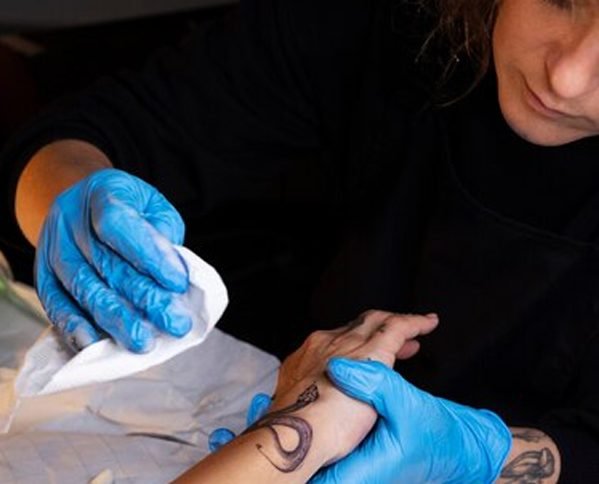
Over time, tattoos have grown in popularity as more and more people choose to use body art as a means of self-expression. However, for various reasons, some individuals may decide that they no longer want their tattoos. In the past, the only options for tattoo removal were expensive and invasive procedures like laser removal or surgical excision. But now, there are claims that tattoo removal creams offer a more affordable and convenient solution. So, let’s explore the truth behind tattoo removal creams and whether they are fact or fiction.
Understanding Tattoo Removal Creams
Tattoo removal creams are topical products that claim to fade or remove tattoos gradually. These creams typically contain a combination of ingredients that are believed to break down the tattoo ink and fade it over time. The idea is that by applying the cream regularly, the tattoo will eventually become less visible or even disappear completely.
The Reality of Tattoo Removal Creams
While the concept of a cream that can remove tattoos sounds appealing, the reality is that tattoo removal creams are largely ineffective. The main reason for this is that tattoo ink is injected deep into the dermis layer of the skin, making it difficult for a topical cream to reach and break down the ink particles. Additionally, tattoo inks vary in composition, and there is no one-size-fits-all solution that can effectively remove all types of tattoos.
Most tattoo removal creams on the market today have not been scientifically proven to be effective. Many of these products make bold claims but lack substantial evidence to support their effectiveness. It is essential to approach these claims with skepticism and do thorough research before investing in any tattoo removal cream.
The Risks and Side Effects
The possible hazards and side effects are an important factor to take into account when thinking about tattoo removal creams. Some creams may contain harsh chemicals that can irritate the skin, leading to redness, itching, or even allergic reactions. Since tattoo removal creams are not regulated by the FDA, the safety and efficacy of these products cannot be guaranteed.
It is also important to note that attempting to remove a tattoo at home with creams can increase the risk of scarring or skin damage. Improper use of these products, such as excessive scrubbing or using abrasive tools, can cause more harm than good. It is always recommended to consult a professional tattoo removal specialist or dermatologist for safe and effective tattoo removal options.
Alternative Tattoo Removal Methods
While tattoo removal creams may not be the miracle solution they claim to be, there are alternative methods available for those seeking tattoo removal. Laser tattoo removal is considered the gold standard in tattoo removal procedures. It involves using high-intensity laser beams to break down the tattoo ink, allowing the body to naturally eliminate the fragmented particles over time.
Another method of tattoo removal, particularly for minor tattoos, is surgical excision. The tattooed skin is cut out during this process, and the surrounding skin is sewn back together. However, surgical excision may not be suitable for larger tattoos or those in sensitive areas.
It is important to consult with a professional tattoo removal specialist to determine the best course of action based on the size, color, and location of the tattoo, as well as the person’s general health and skin type.
Conclusion
Tattoo removal creams may seem like an attractive and convenient solution for those looking to get rid of unwanted tattoos. However, the reality is that these creams are mostly ineffective and can potentially cause harm to the skin. It is always best to consult a professional and explore alternative methods like laser removal or surgical excision for safe and effective tattoo removal. Remember, removing a tattoo is a personal decision, and it is essential to make an informed choice based on accurate information and professional advice.
